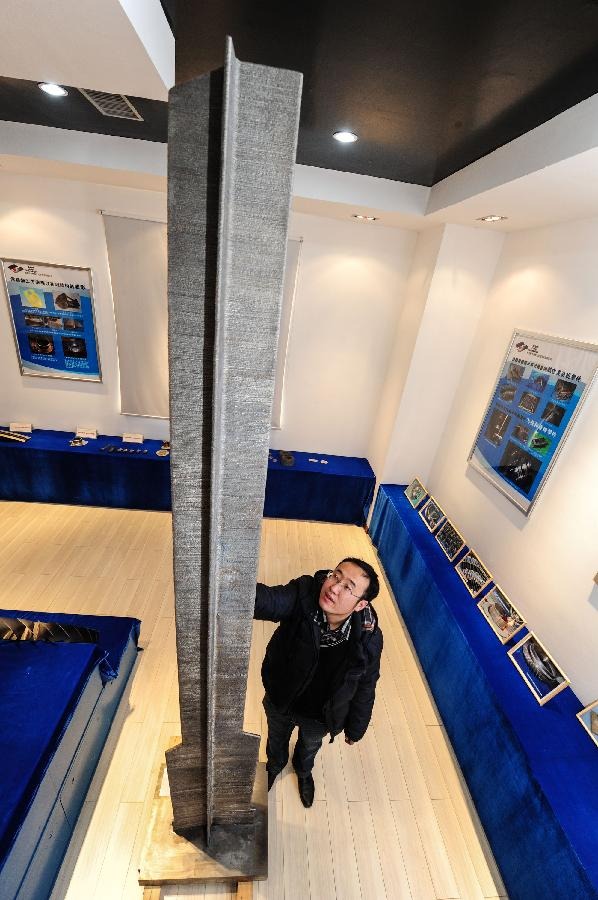China Looks to Additive Manufacturing for Aerospace

An AM-built beam for use in aviation, printed at Northwestern Polytechnical University in China. Courtesy of Guancha Zhe.
Latest News
February 18, 2013
For the last decade or so, most additive manufacturing (AM) growth and development has taken place in the US or Europe, with Israel’s Objet being an obvious exception. The rest of the world was bound to start catching up eventually. South Africa has its own aerospace operation in the works and now China is looking to AM to produce results in the same field.
As part of an $80 million investment in AM, China is researching laser sintering as a way to reduce costs of working with titanium in aerospace parts. In general, AM offers an advantage over traditional manufacturing methods when it comes to expensive materials because the AM process involves less waste, and can produce parts with more complex internal geometries.
With a large chunk of the $80 million coming from defense, China is particularly interested in investigating ways to use AM to increase the efficiency of its air force, specifically in the production of its next generation of fighter jets, the J-20 and J-31. Thus far, Northwestern Polytechnical University has succeeded in building titanium wing beams that measure in at a little over 16 ft. (5 meters), and is aiming at commercialization of the process by 2016
“As the aviation technology develops, the components are also getting lighter, more complicated, and also need to have better mechanical properties,” said Huang Weidong, director of Northwestern Polytechnical University’s laboratory. “It is very hard to use traditional technologies to make such parts, but 3D printing could just meet such demands.”
Below you’ll find a video about the state of AM in China.
Source: ZDNet
Subscribe to our FREE magazine, FREE email newsletters or both!
Latest News
About the Author
John NewmanJohn Newman is a Digital Engineering contributor who focuses on 3D printing. Contact him via [email protected] and read his posts on Rapid Ready Technology.
Follow DE






